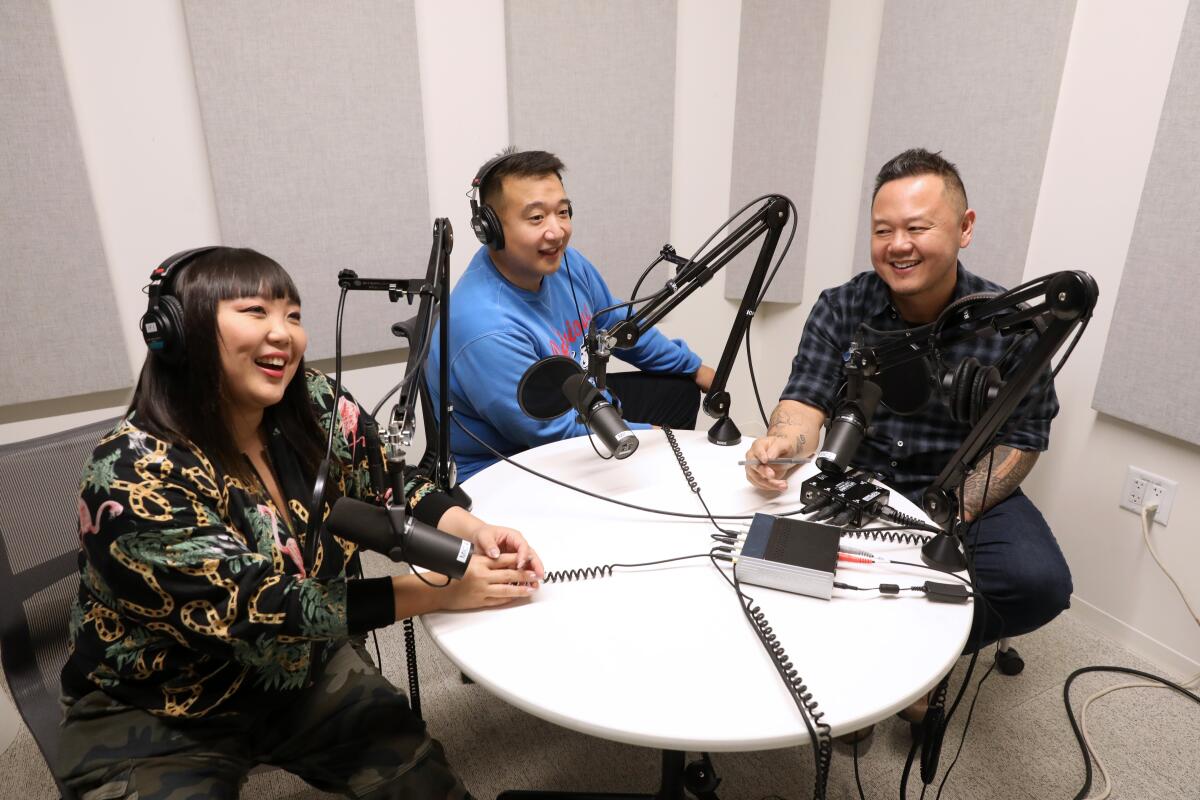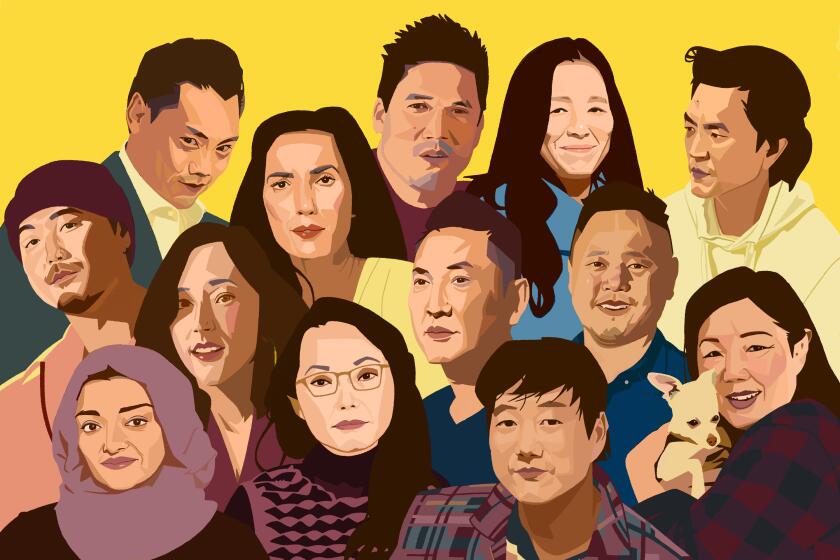On a new podcast about Asian American identity, we talk about the struggle to feel we’re ‘enough’

When I was 15 years old and growing up in Tennessee, some popular girls asked me to play the character Ching in my high school’s production of “Anything Goes,” a classic Broadway musical about the antics of passengers on a transatlantic ocean liner.
Ching, and his counterpart, Ling, are racial caricatures — two Chinese gamblers imprisoned for cheating passengers out of their money. I accepted the role because I was a geeky freshman flattered by the attention and eager to make friends.
And so for three nights and dozens of rehearsals, I donned a red silk robe, spoke in a feigned Chinese accent and portrayed my people as America has always seen them — as an untrustworthy, exotic punchline.
“Asian Enough” is a podcast about being Asian American — with guests like John Cho, Lulu Wang, Mina Kimes, Margaret Cho and Padma Lakshmi.
I feel a lot of shame about that memory, and I’ve never really talked about it. I was worried by what other Asian Americans might think of me, and most of the time I just try to forget that it even happened. I’ve covered Asian American communities for nearly a decade now, and I’ve tried to make my career as a journalist about the opposite of what I did on that stage.
But I’ve been talking about this memory a lot recently, and about a lot of others like it, because we’ve been working on a podcast at the Los Angeles Times called “Asian Enough,” to be released March 17.
Each week, entertainment reporter Jen Yamato and I interview a different guest about what being Asian American means to them. On every episode, we talk about what Asian Americans are, and aren’t. We name the boxes that America tries to put us in, and together, we encourage one another to reject them.
What we’ve found is that sharing these vulnerabilities can take away their power to hurt us. And talking about them has helped me understand that a lot of Asian Americans have been through a lot of the same things. Though we might be the most disparate racial category in America, comprising dozens of nationalities, languages and cultures, what we have in common are the weird stereotypes that America tries to apply to us.
I’ve come to see being Asian American as not so much an identity as it is a shared sense of racial dislocation. It’s what happens when this country tries to put you in a box. Sometimes you climb in because you crave belonging. Or you reject it, but it haunts you anyway. And sometimes you realize you don’t fit any of the boxes, and you’re left to wonder whether you fit in at all.
When you can’t be Asian enough and you’ll never be American enough to fit into any other racial category, what remains is this nagging feeling of alienation and inadequacy. And you start to blame yourself rather than the impossible quandaries you’re presented with.
So on our podcast, we also talk about our shames and flaws, and try to accept them. It’s a scary conversation to have, but an important one: Psychologists are exploring the possibility of a connection between racial dislocation and mental illness among Asian Americans. Asian Americans may be overrepresented at elite colleges, but once there, they struggle with higher rates of suicide and mental illness.
And so many of my Asian American friends have spoken of not being Asian enough and not being seen as American. If we all feel this way, maybe we’re having the wrong kind of conversation.
Growing up in Tennessee, I thought I could find belonging in trying to be white. I remember saving up my money to buy clothes from Abercrombie & Fitch and begging my mom for a puka shell necklace. I studied “Friends” episodes to try to understand American humor, and rehearsed the jokes, thinking that if I could be seen as a Joey, Chandler or Ross, perhaps I would be more popular or socially interesting.
But I never felt like myself. Playing Ching helped me realize that.
Moving to California, and spending the last 10 years telling Asian American stories, I’ve found so much belonging in my community. What once brought me shame now fills me with pride. I own my own silk jacket now that I bought in Chinatown, and I wear it when I visit the temple on Chinese New Year. When I’m out reporting, I no longer find it shameful to hear Asian-accented English — instead, it reminds me of my mother and father talking.
We may never figure out how to convince American society that we are just as American as everyone else. But we can try to accept each other. We can tell each other, even as society tells us the opposite, that who we are is enough.
More to Read
Sign up for Essential California
The most important California stories and recommendations in your inbox every morning.
You may occasionally receive promotional content from the Los Angeles Times.











